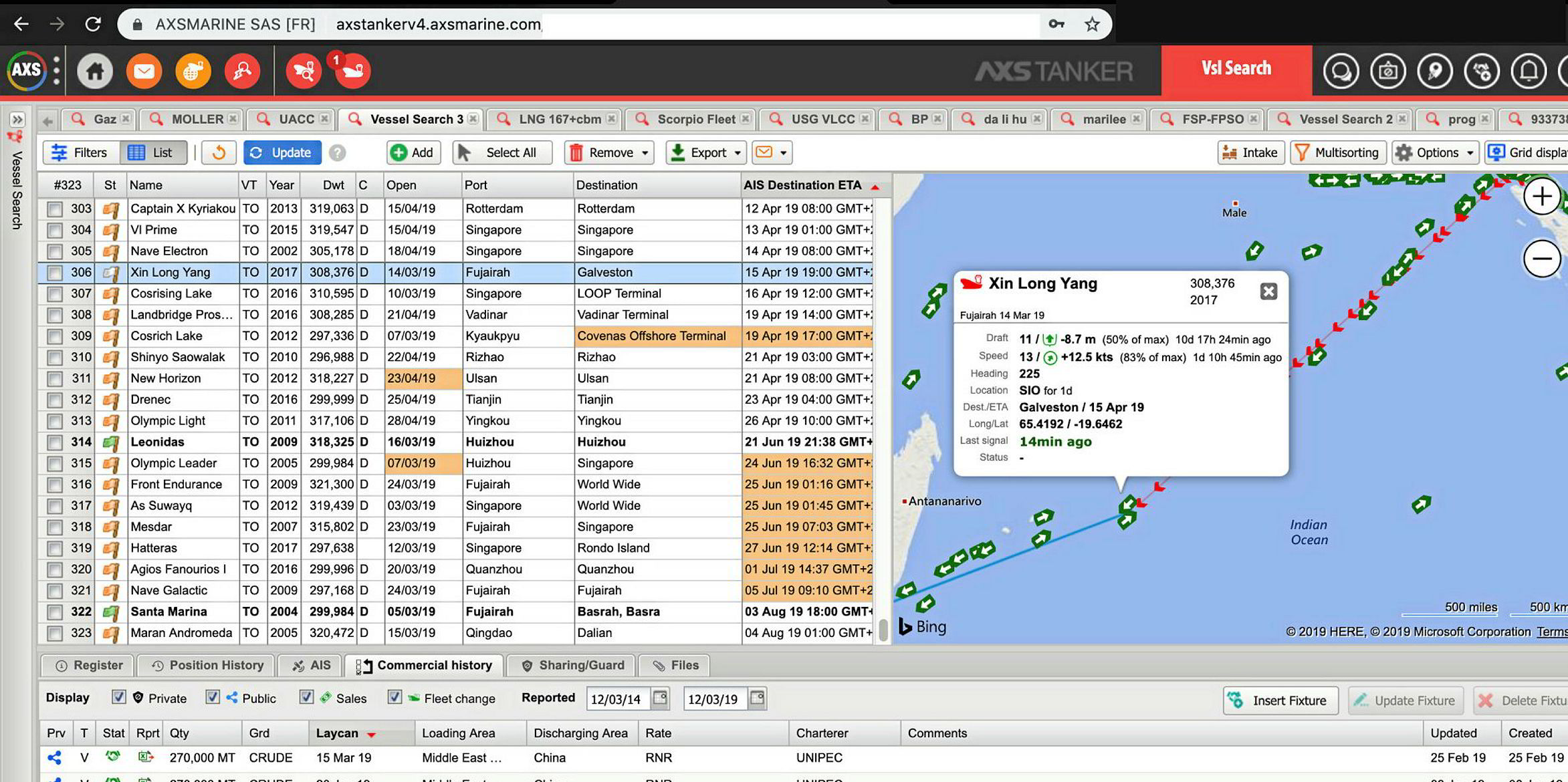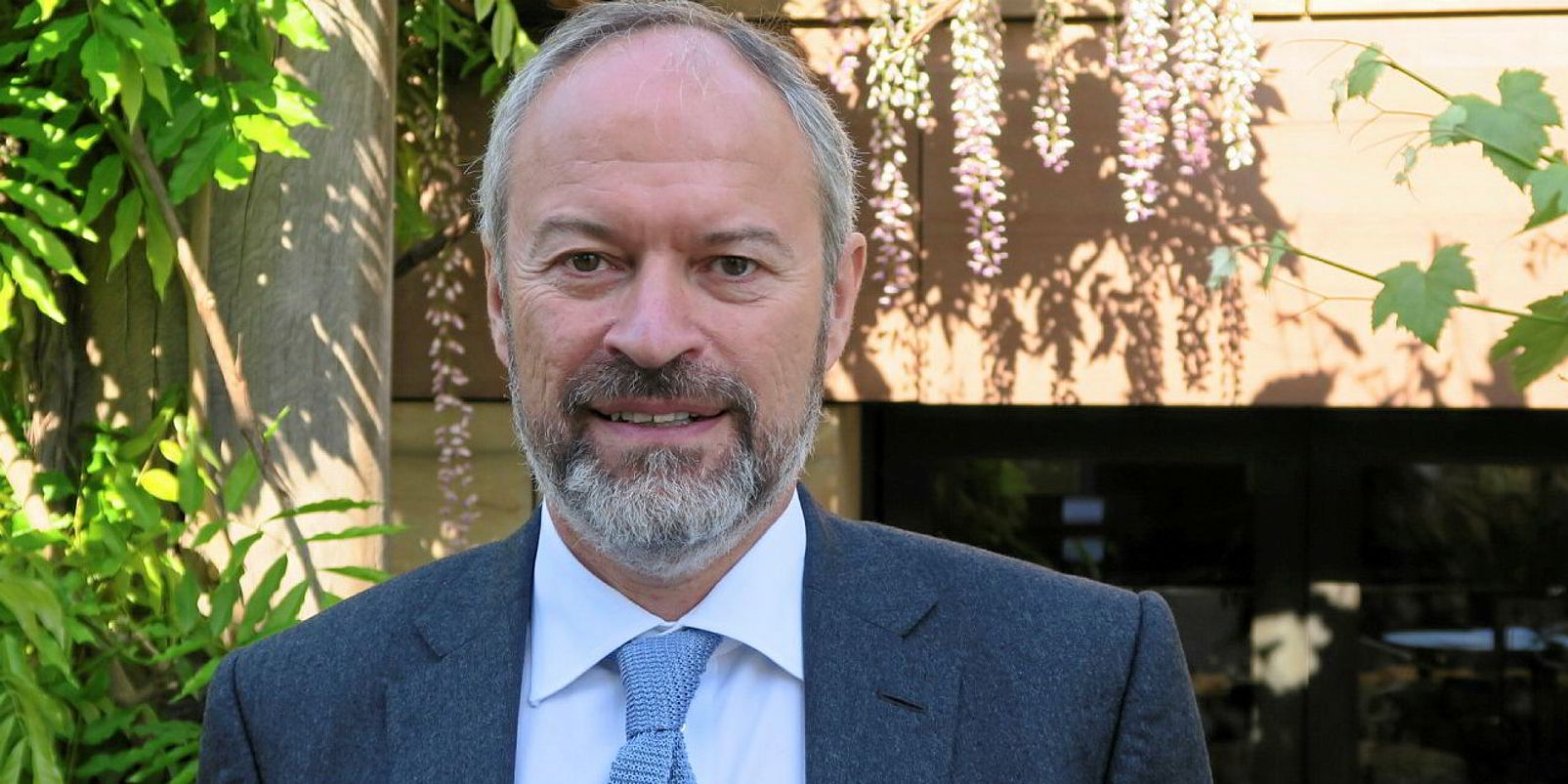Electronic chartering of ships is feasible, but BRS chairman Tim Jones questions whether the market has an appetite for it.
“I think electronic chartering will take place but I don’t think it will be tomorrow and I don’t think the market is there yet or wants it,” he tells TradeWinds during an interview at the shipbroker's Paris headquarters.
Jones says he reads with disbelief people claiming they are going to blow everyone out of the water with on-screen fixing of vessels because the shipping industry is all about “evolution” and not revolution.
“It is only when something actually helps you do your job better that you adopt it,” he says. “Uberisation of shipping tomorrow isn’t going to happen.”
Platforms still have to be developed that can handle successfully bills of lading, charterparty editing and term sheet calculations. “No one can do that today with any significant impact,” says Jones.
“Until everyone gets to a place where they see value in an electronic platform, there won’t be enough players to make it worthwhile. It’s all about community.”
Until everyone gets to a place where they see value in an electronic platform, there won’t be enough players to make it worthwhile. It’s all about community
Tim Jones
BRS is an information and data systems provider via its part-owned AXSMarine, established 19 years ago. It has not entered the electronic trading space despite early ambitions of becoming the “broker transaction platform” in response to the launch of the LevelSeas platform during the early 2000s.
Sharing strategy
Instead, AXSMarine has pursued a strategy of sharing developments costs with industry subscribers of evolutionary tools to improve efficiency.
Developments such as facilitating the analysis of ship and cargo movements, scanning hundreds of thousands of emails daily for companies, updating positions and a cargo/vessel matching system.
One possible electronic chartering breakthrough could be if sites are developed that include all offers and bids on, say, the US Gulf to China/Japan, inter-Baltic or West Africa-North Africa trades.
“If you get five or six of these localised markets that work then someone might come in and buy them all and try to harmonise them,” says Jones. But that could take years, he adds.
A key question is whether a monolith like Google may step into the shipping space and try to revolutionise it.

“I don’t think so,” says Jones. “It is more likely to be a BRS, Clarksons or major freight participant that evolves their products to meet their clients’ demands and little by little becomes the central place. My feeling is this isn’t a market for outsiders.”
Community is a common theme when talking to digital players, where the charterers, owners, agents, bankers and others all have access to market information
AXSMarine and others, for example, allow subscribers to share data selectively with whom they like, supporting industry transparency, while keeping “close to their chest what they deem sensitive enough not to share”, says AXSMarine chief executive Jacques Goudchaux.
He highlights also the fact that one reason trading platform LevelSeas failed was because it was not inclusive. It was hostile to brokers, he adds.
LevelSeas was expected by many to decimate the shipbroking community but 19 years later nothing like that has happened, says Jones.
It is the big principals who want brokers out, either because they add visibility or at least knowledge
Tim Jones
He attributes the collapse of LevelSeas also to the fact that “it was too complicated and standardisation of the industry, which allows you to have processes that function — isn’t there yet”.
Dot.com victim
Established in early 2000 by Cargill, BP, Clarksons and Shell, LevelSeas was probably the most high profile among scores of online shipping sites that surfaced during the dot.com boom. BHP Billiton, AP Moller-Maersk, Chevron and Glencore joined but the platform folded in August 2002 having burned £60m ($67m at today's exchange rate).
BHP Billiton’s attempt since early 2017 at online fixing of its cargoes on the Australia-China trade has also sought to lower costs by cutting out the broker.
Different industry sources tell TradeWinds they have seen little BHP Billiton platform activity apart from a few fixtures in very bad markets when owners were eager to secure cargoes.
Jones claims: “It is the big principals who want brokers out, either because they add visibility or at least knowledge."

I don’t see that our broking services are unduly threatened
James Kidwell
“Well, he would say that, wouldn’t he?” the famous riposte of Mandy Rice-Davies in the Profumo affair many years ago may be on the lips of charterers reading this article but the fact is that brokers, despite all the digital hype, remain an integral part of shipping. BRS alone employs more than 200, while Clarksons well over 700 brokers.
Braemar Shipping Services chief executive James Kidwell took to the podium of a seminar last year arguing also that clients are still prepared to pay for the added value that skilled shipbrokers can provide.
“I don’t see that our broking services are unduly threatened” by current digital alternatives, he said at the time.
Automating trust
Singapore Exchange SGX has successfully taken iron ore trading on screen, offering reduced fees and cutting out the broker, but Jones says it will be difficult in shipping until screen trading can mirror an industry that has traditionally worked on trust and with the broker at the centre.
It will be a long time before a screen knows what P&C means, and until an algorithm can figure out who needs and can benefit from information, while keeping it from others, says Jones.
And just think of the permissions required to do a transaction online such as compliance and port approvals, he adds.
“Sometimes the present system is not transparent or totally efficient but in general the industry handles billions of tonnes with very little problem because the brokers are in the middle advising on what will be the next fixture,” says Jones. "We do not set the market but we act as catalysts to move it.”
He concludes: "I know the brokers are not against electronifying our industry but without a central place that has all our interests at heart — principals and brokers — it risks being a very scattered process.”
Certainly, online chartering refuses to go away with talk in the market of a more general Australian miners’ platform in collaboration with other Australian exporters.
TradeWinds asked various sources but was unable to confirm whether, as one broker commented, it might be just “rumour or scaremongering”.
This story is part of the Shipping's Digital Future business focus. Read the full report in this week's editoin.






